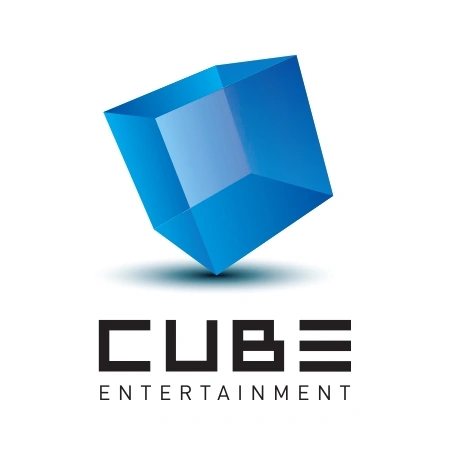What is Cube Entertainment?
Cube Entertainment, a renowned South Korean entertainment company, has made significant contributions to the global music scene. Founded in 2006 by Hong Seung-sung and Shin Jung-hwa, the company has rapidly grown into a powerhouse, managing popular K-pop groups and solo artists. This blog post delves into the essence of Cube Entertainment, exploring its history, offerings, challenges, and impact on Korean culture.
Cube Entertainment is known for its innovative approach to artist management and music production. From its inception, the company has focused on nurturing talent and providing artists with the freedom to express their creativity. The combined experience of its founders has laid a solid foundation, allowing Cube Entertainment to become a significant player in the K-pop industry.
Overview
Cube Entertainment has become a cornerstone of the K-pop industry, producing successful groups and solo acts. Here’s a quick overview of Cube Entertainment in the context of K-pop:
| Name | Cube Entertainment |
|---|---|
| Founding Date | 2006 |
| Founders | Hong Seung-sung, Shin Jung-hwa |
| Trainee System | Rigorous training in music, dance, and performance |
| Genre and Musical Style | K-pop, Pop, Dance, Hip-Hop, Ballad |
The History and Its Impact on K-pop
Cube Entertainment was established with the vision of nurturing and promoting talent in the entertainment industry. Initially, it started as a small company but quickly gained recognition with its strategic approach to artist management and music production. Over the years, Cube has been home to several successful artists and groups, including BEAST (now Highlight), 4Minute, BTOB, CLC, and (G)I-DLE, among others.
The journey began when Hong Seung-sung, former president of JYP Entertainment, teamed up with Shin Jung-hwa to create an agency that prioritized artist development and creative freedom. Their combined experience in the industry laid a solid foundation for Cube Entertainment. The company’s initial success came with the debut of its first girl group, 4Minute, in 2009. The group quickly gained popularity with hits like “Hot Issue” and “Muzik,” establishing Cube as a serious contender in the K-pop industry.
In 2010, Cube Entertainment introduced BEAST (now known as Highlight), a boy group that quickly garnered immense success with their debut song “Bad Girl.” Moreover, BEAST’s popularity soared with subsequent releases, earning numerous awards and establishing a dedicated global fan base. Their success, in turn, solidified Cube Entertainment’s reputation as a company capable of producing top-tier talent.
The following years saw Cube expanding its roster with acts like G.NA, BTOB, CLC, Pentagon, and (G)I-DLE. Each of these artists brought something unique to the table, further diversifying Cube’s portfolio. For instance, (G)I-DLE, debuted in 2018, quickly became one of the leading fourth-generation K-pop girl groups with hits like “LATATA” and “HANN (Alone).”
Cube Entertainment’s growth wasn’t limited to just artist management. The company also ventured into other areas such as actor management and international collaborations. For example, in 2011, Cube formed a joint venture with Universal Music, enhancing its global reach and distribution capabilities. This partnership allowed Cube artists to enter international markets more effectively, contributing to the global Hallyu wave.
Despite its success, Cube Entertainment faced significant challenges. Internal conflicts led to the departure of key artists, such as HyunA and E’Dawn, which caused considerable public and media scrutiny. Financial difficulties also plagued the company, particularly during periods of heavy investment in new projects and global expansion efforts. However, Cube’s ability to bounce back from these setbacks demonstrated its resilience and commitment to growth.
Cube Entertainment’s focus on innovation and adaptation has consistently kept it at the forefront of the industry. Moreover, the company has effectively embraced digital platforms and social media to connect with fans worldwide, ensuring that its artists remain relevant in a rapidly changing market. This forward-thinking approach has, in turn, enabled Cube to maintain a strong presence in the highly competitive K-pop landscape.
The Strategies
Cube Entertainment employs several key strategies to maintain its status in the competitive K-pop industry. Here are some of their core strategies:
- Talent Discovery and Training: Rigorous global auditions and a comprehensive training program to hone the skills of aspiring artists.
- Artist Development: Focused on nurturing the creative and personal growth of artists, allowing them creative freedom while providing robust support.
- Innovative Music Production: Utilizing state-of-the-art production facilities to ensure high-quality music releases.
- Global Expansion: Conducting global auditions and collaborating with international artists to reach a wider audience.
- Fan Engagement: Building strong connections between artists and fans through fan meetings, social media interactions, and exclusive content.
- Diversification: Launching subsidiary labels and diversifying into various entertainment sectors to broaden the company’s influence.
Role in the Korean Entertainment Industry
Cube Entertainment plays a significant role in the Korean entertainment industry. By consistently producing high-quality music and managing successful artists, Cube has greatly contributed to the global popularity of K-pop. Moreover, the company’s innovative approach to artist management and music production has set industry standards, influencing other entertainment companies.
Additionally, Cube’s ability to adapt to changing industry trends and its focus on global expansion have allowed it to build a strong international presence. Furthermore, its commitment to discovering and nurturing talent has brought fresh and diverse voices to the K-pop scene, enriching the genre and broadening its appeal.
Through its joint ventures and collaborations, Cube has enhanced its global reach and resources, positioning itself for continued success in the international market. Cube’s focus on fan engagement has fostered a loyal fanbase, further solidifying its impact on the industry.
Additional Resources
- Cube Entertainment Official Website: Visit for official updates, artist profiles, and company news.
- YouTube – Cube Entertainment: Watch music videos, behind-the-scenes content, and live performances.
- Twitter – Cube Entertainment: Follow for the latest news, announcements, and artist updates.
- Instagram – Cube Entertainment: Discover photos, videos, and stories from Cube artists.
- Facebook – Cube Entertainment: Stay connected with posts, event updates, and fan interactions.

